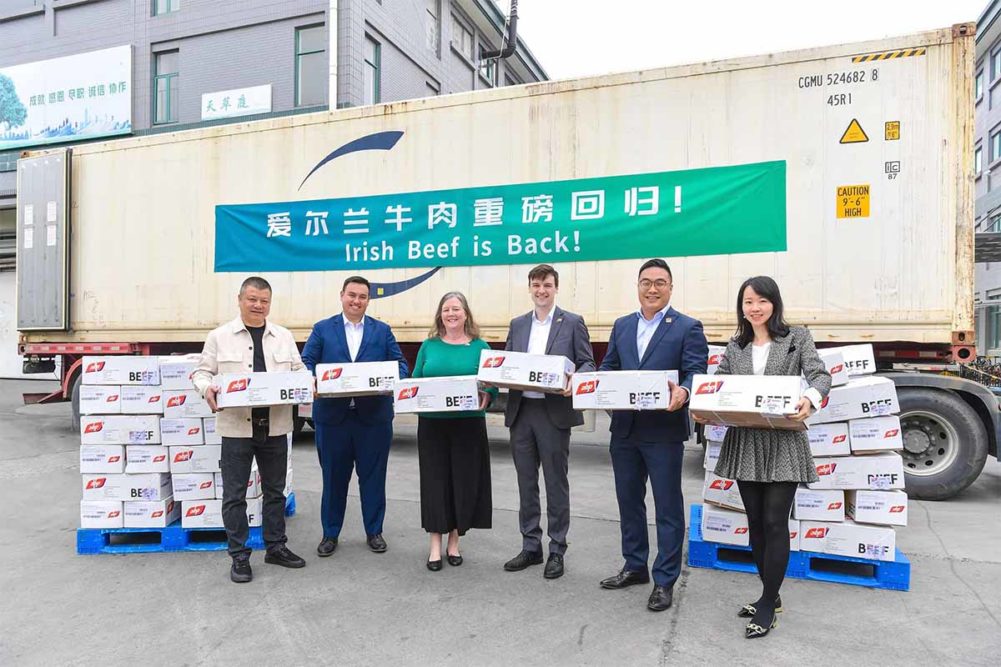SHANGHAI – The first shipment of beef from Ireland to China since 2020 was completed on April 23, according to Bord Bia, the Irish Food Board. The Department of Agriculture, Food and Marine said the first container arrived last month after trade officials from the two countries announced in January 2023 that Irish beef exports to China would resume after a three-year suspension that resulted from the discovery of an isolated case of bovine spongiform encephalopathy in Ireland in 2020.
The recently shipped beef was processed by Ireland’s ABP, which was the first company to secure a trade contract with China in 2018. After first entering the market that year, grass-fed beef from Ireland was widely regarded as the leading source in the Chinese retail and foodservice markets. Bord Bia said the General Administration of Customs of China’s decision to lift the suspension would initiate a relaunch of a campaign to promote Irish beef in the country.
“We are delighted to welcome Irish beef back into the Chinese market after a suspension of almost three years,” said Conor O’Sullivan, Bord Bia’s China manager. “Bord Bia is now engaged in an Irish beef relaunch campaign focusing on trade seminars, chef demonstrations, and media engagement. Over the next month, we will be exhibiting at two major international meat trade shows in China – the China International Meat Industry Exhibition (CIMIE) and SIAL China in May – to showcase Irish beef to Chinese buyers.”
Frozen beef for the foodservice segment is the biggest market in China. Bord Bia said frozen beef represents 60% of China’s beef consumption and among foodservice chain customers there, the preference is for imported beef. O’Sullivan said the evolving foodservice market and evolving consumer base in China is favorable for the future of Irish beef.
“Chinese consumers highly value the quality of their food ingredients, and the quality of imported beef is highly regarded, presenting a significant opportunity for Irish beef suppliers,” she said. “Hot-pot restaurants, steakhouses and barbecue restaurants are all seeking high-quality and reliable imported beef, which is great news for Irish companies in the market. This rise of e-commerce and specialized stores is part of the changing consumption patterns in China’s expanding middle class, which puts a premium on health and taste, she said. “This trend is an excellent fit for Ireland’s grass-fed, sustainably produced beef.”
In April, Bord Bia hosted 15 Chinese government officials to Ireland to inform and educate them about the production and processing of Irish meat by visiting farms and processing operations in the country. The knowledge transfer program was part of the EU Pork and Poultry campaign, which occurred concurrently with the EU Beef and Lamb campaign in China.


